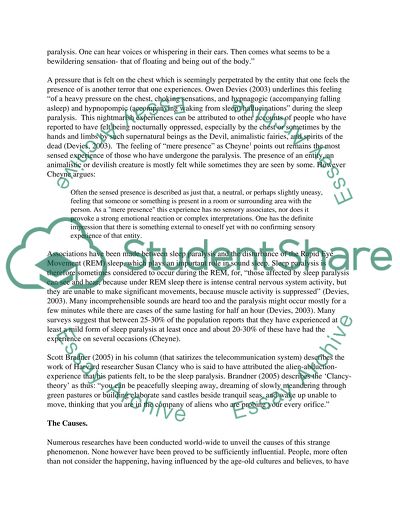Cite this document
(“Sleep Paralysis Essay Example | Topics and Well Written Essays - 2500 words”, n.d.)
Retrieved from https://studentshare.org/miscellaneous/1559785-sleep-paralysis
Retrieved from https://studentshare.org/miscellaneous/1559785-sleep-paralysis
(Sleep Paralysis Essay Example | Topics and Well Written Essays - 2500 Words)
https://studentshare.org/miscellaneous/1559785-sleep-paralysis.
https://studentshare.org/miscellaneous/1559785-sleep-paralysis.
“Sleep Paralysis Essay Example | Topics and Well Written Essays - 2500 Words”, n.d. https://studentshare.org/miscellaneous/1559785-sleep-paralysis.


